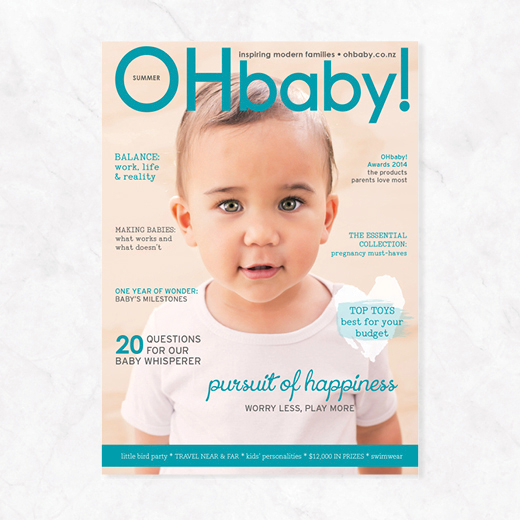Are all your ducks in a row?

Leaving behind dependant loved ones is not something we like to talk about, but planning for the unforeseen means you can relax and enjoy today.
Most of us expect to live well into retirement but sadly a surprising number don’t make it. In 2013 almost 19% of all deaths were people of working age. In many of these cases death would have been unexpected and because almost half of all New Zealanders don’t have life insurance, we can assume that many will have been financially unprepared. So while it is a sobering topic, let’s discuss the options available to help you plan what’s best for your family. At the end of the day, life insurance is not for you, it’s for those you leave behind.
Types of life insurance
• Term life cover pays a specific cash sum upon death. Premiums are adjusted annually (increasing as you get older) and you can cancel the policy whenever you no longer need it, for example when the mortgage is paid off or the children are no longer financially reliant on you.
• Mortgage repayment insurance is similar to term life and is typically tied to your mortgage. It reduces as your mortgage reduces and pays off the outstanding debt if you die.
• Trauma insurance pays a specific cash sum if you are diagnosed with any one of a number of medical conditions, such as heart attack, stroke or cancer.
• Total and permanent disablement insurance also pays a cash sum if a medical condition prevents you working.
• Income protection insurance is perhaps more of a lifestyle cover, paying either a fixed monthly benefit or a percentage of your monthly income if you’re unable to work.
• Funeral insurance is designed to meet funeral expenses. The premiums are usually set when you buy the cover and stay the same throughout. In some cases premiums will stop altogether at a pre-determined age.
DIY or professional
Some people opt out of insurance cover as they are in a position to self-insure, meaning they could afford to take care of themselves from their own resources, (savings or assets that could be sold) should they be unable to work.
In the event of an unexpected death, the stress of financial pressure also needs to be considered alongside the trauma of grief. Only time can heal grief, but there are ways we can ease our family’s financial burden and these are well worth considering.
Perhaps one option is to buy some insurance; maybe not enough to replace your salary until the children leave home or fully repay the mortgage, but enough to get over the immediate crisis and buy time to recover, consolidate and restructure.
Many people ask why they would need income protection insurance when there is ACC? ACC will certainly give you a level of protection if you are unable to work after an accident (up to 80% of your income for a maximum of two years). But if your inability to work is because of a medical condition, you would be reliant on the sickness benefit unless you have income protection cover.
Ways to shop
The most popular way to buy life insurance is to seek the advice of a financial adviser. Financial advisers are regulated and must act with care, diligence and skill.
Many consumers purchase their cover through their bank. All banks offer life insurance and several have their own insurance companies. However, banks don’t offer the full range of products you would get from a financial adviser.
There is a growing trend to buy life insurance directly from the insurer and many would argue this distribution model best suits Gen Y, young parents today and those of the future.
How much is enough?
The simple answer is that it depends.
Consider the following questions:
•What are your objectives? Do you intend to provide fully for your dependents until they are financially independent? For example, would you want enough cover to fund them through university or would you be happy for them to fend for themselves after leaving school?
• Will you make provision to repay the mortgage entirely on your death, or will your surviving partner cope with continued repayments?
• How risk averse are you? Are you prepared to gamble that nothing untoward will happen to you? Would you be happy existing on government-funded benefits if sickness or accidental injury prevented you from earning an income?
•What will your budget stretch to? Young families often struggle with the household budget as it is, and for many life insurance is just a step too far. You may be happy to have a little cover, say $100,000-$200,000 rather than none at all.
Sign me up
You can get an obligation-free quote for life, mortgage, income protection, medical and funeral insurance from Life Direct (lifedirect.co.nz). Alternatively, Consumer New Zealand’s website (consumer.org.nz) will be helpful for members. For life insurance with guaranteed acceptance (where you won’t have to answer any medical history or lifestyle questions), have a look at lifeinsuranceservices.co.nz.
Applying for life insurance involves completing a proposal for insurance. You will be asked a number of medical history and lifestyle questions so the insurer can assess how much of a risk you are. Depending on your answers you may be asked to have a medical examination and possibly undergo additional tests carried out by your doctor.
What will it cost?
Once a life insurer has underwritten your proposal it will apply a premium rate based on your age, your gender, your medical status, BMI (height/weight ratio) and whether or not you smoke. Some example premiums are provided below. These are monthly premiums for non-smokers from one insurance company.
Let’s review
Conventional wisdom says you should review your cover whenever your circumstances change. For example, when you have more children or take out a bigger mortgage you might decide you need extra cover, but when the children are off your hands and you pay off the mortgage or downsize, you might reduce the cover you have. Invariably the cost of your cover increases as you get older and your policy may also be inflation adjusted, increasing a small amount in value every year. It is considered prudent to review these arrangements every 3 to 5 years.
The information in this article was provided by Richard Blatch of DirectLine International. The information is in general terms and not intended to provide any personalised financial advice. Before you buy any financial product or service you should satisfy yourself that it is fit for the purpose you intend. We recommend you seek independent advice before purchasing any financial product or service.

AS FEATURED IN ISSUE 28 OF OHbaby! MAGAZINE. CHECK OUT OTHER ARTICLES IN THIS ISSUE BELOW
















